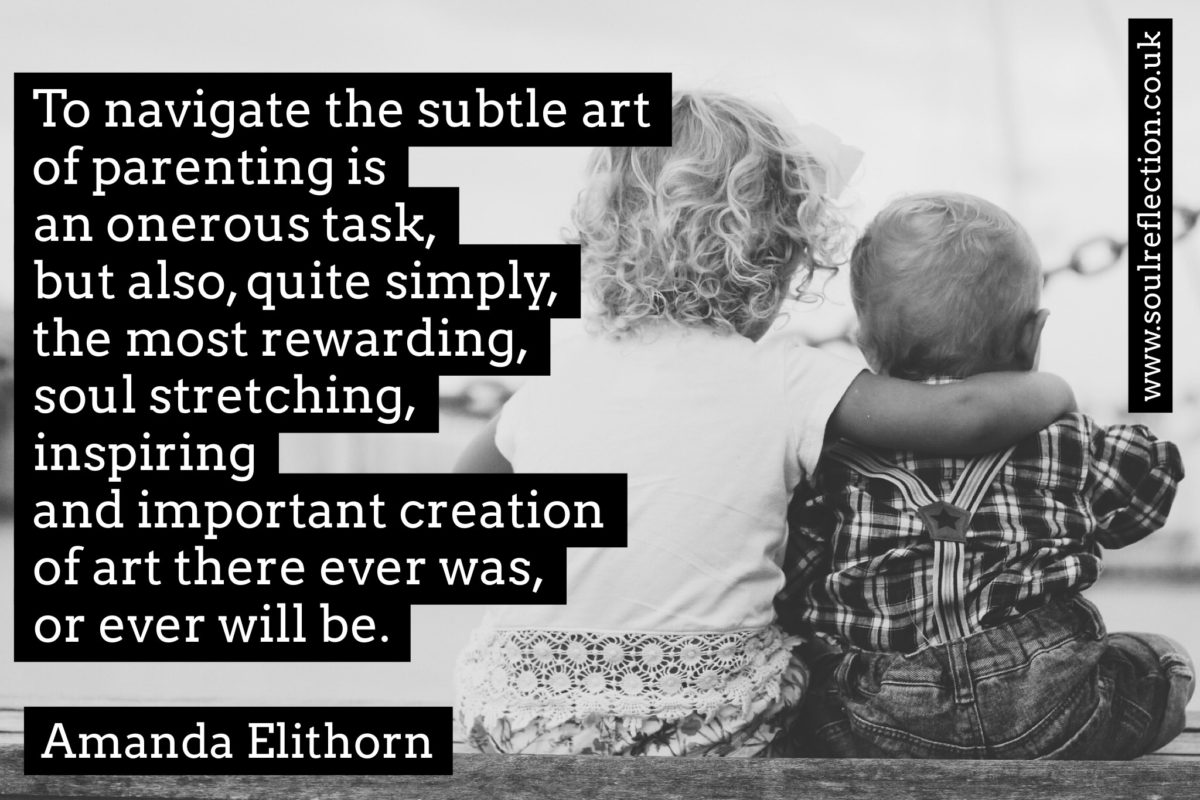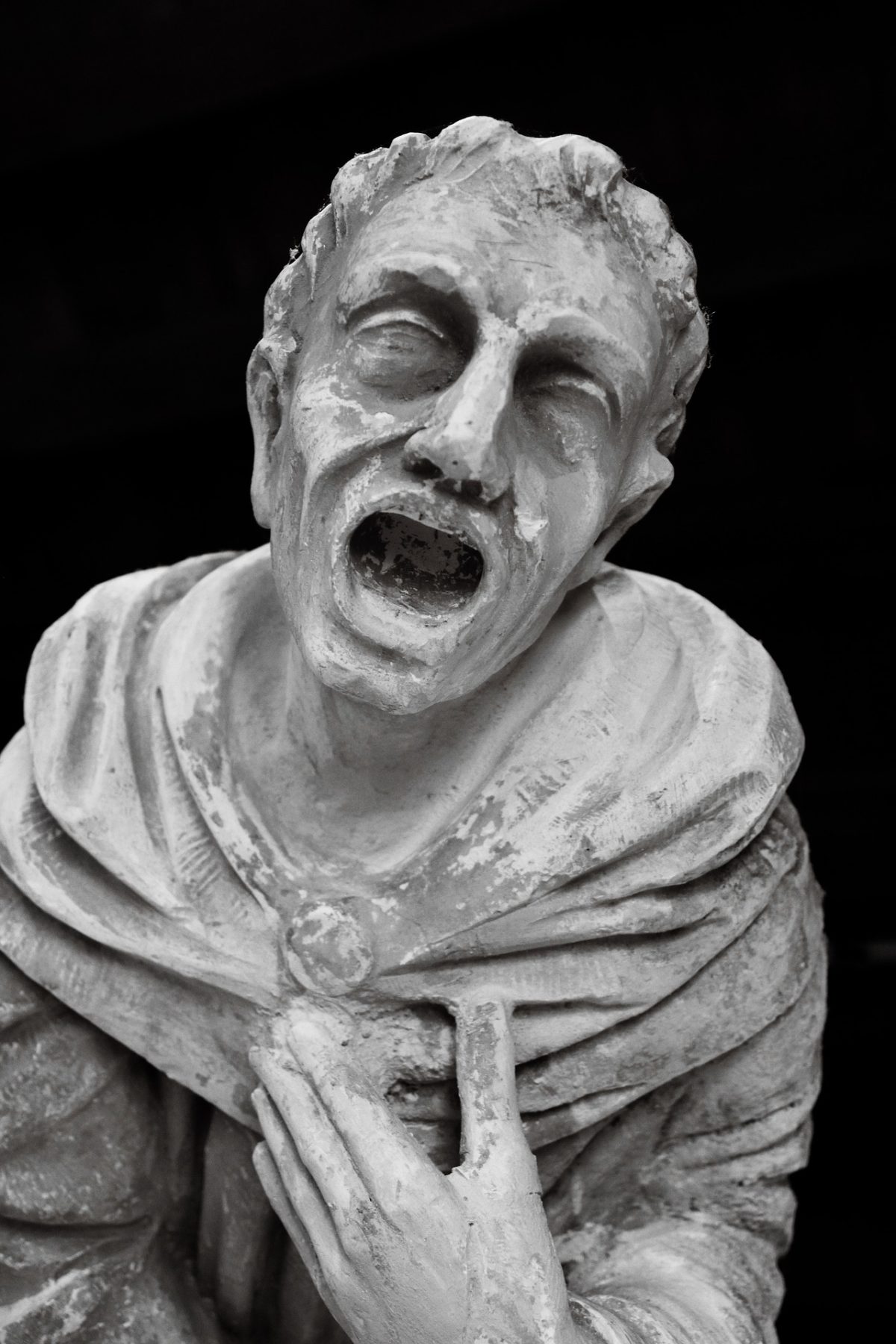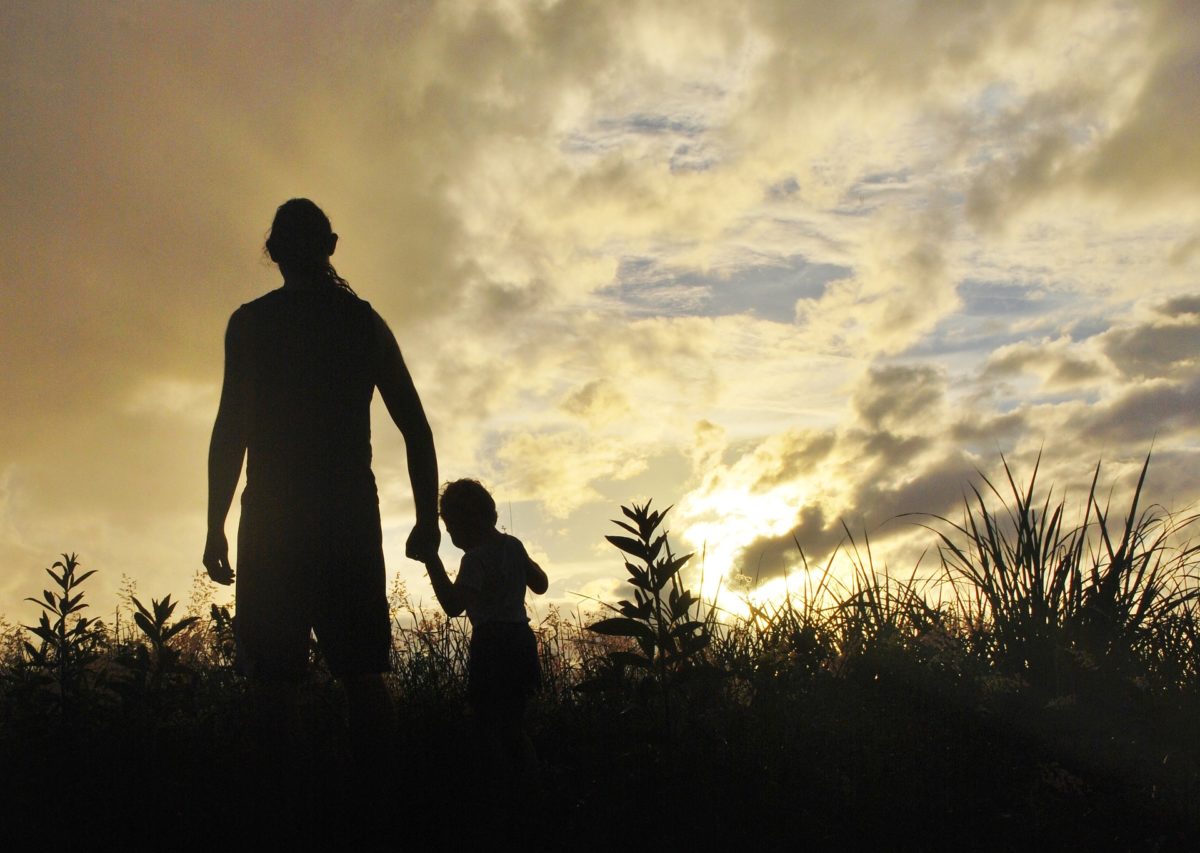It’s easy to claim the titles of mother/father or mum/dad, they’re a biological thing or even a role demarcation. You are, or you are not, a mum or dad.
Being a parent, on the other hand, is a different kettle of fish. You can be a mother or father without ever actually being a parent. To be a parent requires a person to actively parent – to guide, nurture, hold, love, support, cherish, discipline, nourish and be present to a child. Not all at once and not all of the time, but certainly a significant portion of it.
This is not about making the child the centre of your focus, as that too can be detrimental to their own perception of their place in the world, but that the parent’s focus contains the child.
One of the biggest inhibitors of this is our own ego. The part of ourselves that tries to define us; we are ‘such & such’ a person because we have these status symbols or because we behave in this manner. We are seen by the world, and we see the world, with the protection and filter of our ego. It has its place but it can also be frequently a barrier to genuine connection and understanding.
When our, perhaps imbalanced, ego is involved in the parenting mix, it often causes more harm than good. The ego may tell us how our children should behave or be or look or act, as a representative of us. It forgets that children are their own spirits and personalities. Our imbalanced ego prevents us from seeing our children for who they really are, in the place they’re really at, just now, here, in the moment.
By working on the principle of stepping beyond our own ego – by recognising when their behaviour or attitude triggers the delicacy of our own status or place in the world – who am I when my child argues with me? Who am I when my child lies? Who am I when my child hits or hurts us or another? Who am I when my child rejects my food?
By staying with the understanding that it is our ego that wants to control and stop these challenges to our sensitives selves and by reframing the thoughts to – who are my children when they do these things? What are their struggles? Where are their needs being met or not?
When we can offer this alternative, then we can offer our presence, our attention, our attunement and, most of all, our love.
From my own place as a mother and as a daughter, when I consider the art of parenting, I know that the practicalities fall in and around these principles. If I parent from this place of seeing my children for who they are, not how I want them to be; if I pay attention to the subtleties of their days and interactions, I will learn to understand them as they shift and grow. I will be able to offer simple heart connecting wisdom rather than controlling direction and I will meet my children where there are at. Just this.
Indeed, as they age and form their own depths of personalities and experiences, the more important this becomes, and often the harder. Society forgives a tantruming toddler, but less so an emotionally spirited teen. So can we transcend the ego expectations of our societies and embody the role of parent instead?
Not always…. to err is human, but certainly it is a baseline of understanding to return to, to ground ourselves from and to turn around and try again.
So pay attention to what has happened today, what went on in their worlds this week, this month, this year… how has that formed them, influenced them, shifted them? What do they need from us now? Distraction, attention, conversation, silence, hugs, space, food, sleep, healing, laughter, fun, company, connection…?
To navigate the subtle art of parenting is an onerous task, but also, quite simply, the most rewarding, soul stretching, inspiring and important creation of art there ever was, or ever will be.



